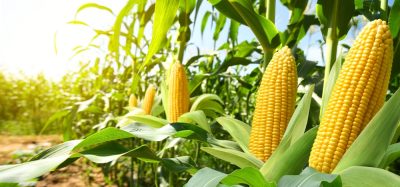Network of AI centres to be built across US to accelerate agrifood research
- Like
- Digg
- Del
- Tumblr
- VKontakte
- Buffer
- Love This
- Odnoklassniki
- Meneame
- Blogger
- Amazon
- Yahoo Mail
- Gmail
- AOL
- Newsvine
- HackerNews
- Evernote
- MySpace
- Mail.ru
- Viadeo
- Line
- Comments
- Yummly
- SMS
- Viber
- Telegram
- Subscribe
- Skype
- Facebook Messenger
- Kakao
- LiveJournal
- Yammer
- Edgar
- Fintel
- Mix
- Instapaper
- Copy Link
Posted: 2 September 2020 | Sam Mehmet (New Food) | No comments yet
This national network of Artificial Intelligence Research Institutes is said to represent the nation’s most significant federal investment in AI research and workforce development to date.


The US Department of Agriculture’s (USDA) National Institute of Food and Agriculture (NIFA) and the National Science Foundation (NSF) have announced they are establishing seven new artificial intelligence (AI) institutes across the US to accelerate agrifood research, expand America’s workforce and transform society for the future.
The $20 million investment in each of five NSF AI institutes and two USDA-NIFA AI Institutes is reportedly the first of more institute announcements anticipated in the coming years.
“This major federal investment in next generation agriculture signals our commitment to keeping American agricultural innovation on the leading edge of global science,” said USDA-NIFA Acting Director, Parag Chitnis. “These future-focused centres of innovation will use the latest techniques from all corners of science including molecular science, engineering and robotics to seek solutions for myriad challenges facing agriculture, from crop improvement and animal welfare to labour shortages and farm safety.”
By partnering USDA-NIFA and NSF with the US Department of Homeland’s Security Science and Technology Directorate, the US Department of Transportation’s Federal Highway Administration and US public research universities, the institutes aim to serve as hubs in a broader nationwide network determined to improve American competitiveness and transform key areas of society. The centres’ research hopes to improve the national capacity in critical areas such as extreme weather preparedness, K-12 education advancement, next-generation workforce development and agricultural resilience and sustainability.
The specific focus areas:
- Integrating a holistic view of the food system with AI and bioinformatics to understand biological data and processes, addressing issues of molecular breeding to optimise traits for yield, crop quality, and pest/disease resistance; agricultural production, food processing and distribution, and nutrition
- AI research in computer vision, machine learning, soft object manipulation and intuitive human-robot interaction to solve major agricultural challenges including labour shortages, efficiency and welfare in animal agriculture, environmental resilience of crops, and the need to safeguard soil health
- AI, atmospheric and ocean science, and risk communication to develop user-driven trustworthy AI that addresses pressing environmental concerns
- Theoretical challenges in AI, including next-generation algorithms for deep learning, neural architecture optimisation and efficient robust statistics
- AI that helps both students and teachers work and learn together more effectively, engagingly and equitably. The vision is to develop “AI partners” that will observe, participate in and facilitate collaborative learning conversations by interacting naturally through speech, gesture, gaze and facial expression in real-world classrooms
- Development of new AI-enabled tools and serves as a training ground for the next generation of scientists with combined expertise in chemical synthesis and bioengineering
- Workforce development, digital learning, outreach and knowledge transfer programs to advance physics knowledge – from the smallest building blocks of nature to the largest structures in the universe – and galvanise AI research innovation to broaden societal impacts.
“The AI institutes being awarded comprise large, multi-disciplinary, and multi-sector collaborations: they bring together consortia of dozens of universities and other organisations, ultimately spanning academia, government, and industry,” said Michael Kratsios, US Chief Technology Officer. “In effect, over the next five years, some of the best minds in the country will be tackling some of the grandest challenges that we face, both in terms of new AI techniques as well as breakthroughs in fields of science and engineering and sectors of our economy. And along the way, they will nurture the future American workforce in AI research and practice.”
Related topics
Recruitment & workforce, Research & development, Technology & Innovation
Related organisations
National Science Foundation (NSF), US Department of Agriculture’s (USDA) National Institute of Food and Agriculture









